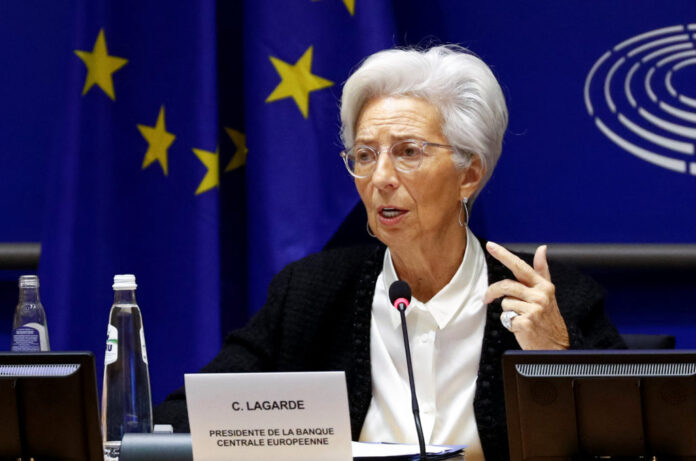European Central Bank President Christine Lagarde said Monday that the euro could emerge as a viable alternative to the U.S. dollar if the 20-nation eurozone strengthens its financial system and security infrastructure.
Speaking at a lecture in Berlin, Lagarde said the bloc is facing a unique opportunity for a “global euro moment,” but warned that the currency must earn its place rather than expect it by default.
Global investors, unsettled by U.S. economic unpredictability, have gradually reduced their exposure to dollar-denominated assets. However, many have turned to gold rather than the euro, due in part to the bloc’s incomplete financial institutions and limited political will for further integration.
Lagarde called for deeper and more liquid capital markets, improved legal frameworks, and stronger security capabilities to support Europe’s open trade commitments.
“The euro will not gain influence by default—it will have to earn it,” she said, noting the dollar still makes up 58% of global reserves compared to the euro’s 20%.
She added that any rise in the euro’s global role must be backed by military strength, as investors value geopolitical reliability alongside economic stability.
To boost international use, Lagarde urged governments to promote the euro in trade invoicing and cross-border payments. She also suggested expanding trade deals and liquidity arrangements with the ECB.
However, she acknowledged that the eurozone’s capital markets remain fragmented and inefficient. A widely available safe asset is lacking, and joint borrowing remains controversial among some member states, especially Germany.
“Economic logic tells us that public goods need to be jointly financed,” Lagarde said, adding that joint debt issuance could pave the way for the creation of safe euro-denominated assets.
If successful, such reforms could draw greater investment, reduce borrowing costs, and make the bloc more resilient to currency swings and sanctions, she said.




